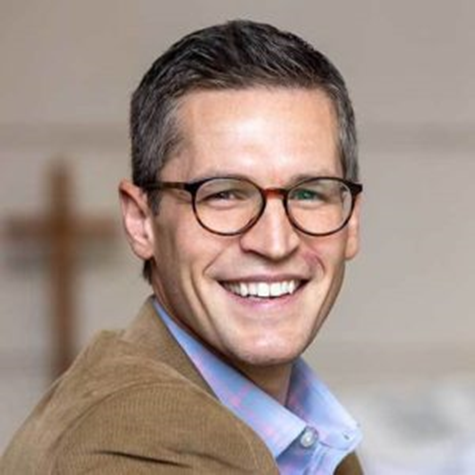I had a coach once who called me “Tough Clough.” He’d use the nickname to poke fun at me, because most people mispronounce my name. So, he used the rhyme to remember. But also, as a college runner, he used the nickname to remind me to be tough and push my body beyond its limits.
Although he challenged me, and I learned the importance of toughness and persistence, this coach had a healthy view of toughness and allowed for flexibility.
In last week’s post, I suggested that the prevalent view of toughness may not be helpful. So, what’s a different model?
On the one hand, we know we need to be tough sometimes. There are long nights and stressful moments in life. Sometimes, amazing things happen when you bear down and just grind it out. As leaders, we step up when crises happen. You lead people to envision and dream about the future. You also receive surprise emails and bursts of anger. I’ll never forget one congregant who confronted me in a hallway one day; she yelled at me, expressing her anger inches from my face. During some renovation work, we had painted the walls in a classroom. But, her anger had nothing to do with the walls. The deep pain she felt was the loss of what the classroom represented to her—her history at the church. These are difficult moments, and some toughness makes you lead better.
At the same time, though, we need resilience. And, we are learning that toughness and resilience don’t come from just powering on, pushing through adversity, working endless hours or sacrificing our families, passions, and vocation. Steve Magness, author of Do Hard Things writes this, “Real toughness is experiencing discomfort or distress, leaning in, paying attention, and creating space to take thoughtful action. It’s maintaining a clear head to be able to make the appropriate decision. Toughness is navigating discomfort to make the best decision you can” (13).
How do you step into the heat of tense situations without reacting, staying self-regulated and healthy? How do you lead necessary change in your congregation or help people see a vision for the future? How do you tend to yourself personally, mentally, emotionally, but also professionally?
Let me propose 4 pillars of real toughness:
Embrace reality.
Magness writes, “Toughness is about embracing the reality of where we are and what we have to do. Not deluding ourselves, filling ourselves with a false confidence, or living in denial…it starts with our expectations” (43). So, ditch the facade, and embrace reality.
Listen to your body.
Remain aware of your feelings and emotions—what’s happening internally. Magness writes, “Toughness is about accurately reading [the] signals—knowing what your body is saying and being able to decide whether or not to respond” (137).
Respond rather than react.
Two steps can help. Create space to spend time alone in your head. Then, keep your mind steady by developing the ability to respond instead of reacting. Being alone is a foundational skill. Practice having a calm conversation. Magness writes, “Creating space is a tool that we can all learn to use, one that helps us disconnect the initial sensation from the reverberating emotional response. And it’s a skill that truly defines grittiness because we are working through a challenge, not blitzing past it” (171).
Transcend discomfort.
The foundation for doing hard things is not punishment or even reward, but support and care. This foundation enables us to transcend discomfort by leaning into it, relishing discomfort, and feeling like we have input, voice, choice, opportunities to grow, and remain connected to our mission and purpose. Magness writes, “Having a strong purpose acts as a turbo boost…when our pursuits match our purpose, we persist for much longer” (258).

Joshua Clough served as Location Pastor for Resurrection Overland Park. He completed his doctorate in Practical Theology and Leadership at Fuller Theological Seminary. He runs marathons, ultra-marathons, and because he grew up in Seattle, drinks a lot of coffee.